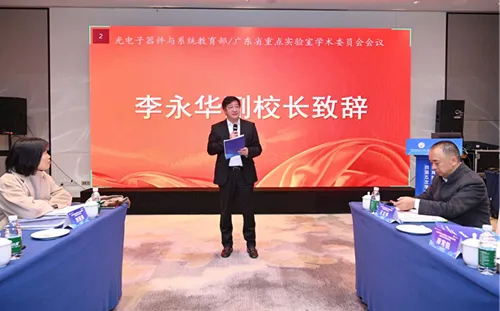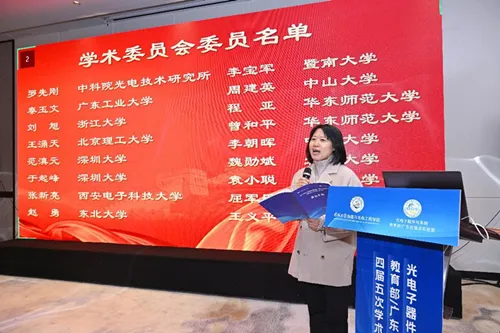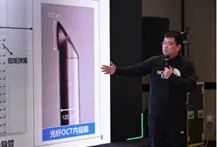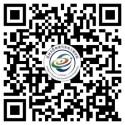On December 23, 2024, the 5th meeting of the 4th Academic Committee of the Key Laboratory of Optoelectronic Devices and Systems of the Ministry of Education and Guangdong Province (hereinafter referred to as the Key Laboratory) was successfully held at the Shenzhen Shentie Crown Plaza Hotel, with both online and offline participation. Attendees included Vice President of Shenzhen University, Li Yonghua, Academician Luo Xiangang, Chair of the Academic Committee of the Key Laboratory, Academicians Yu Qifeng and Qin Yuwen, Professors Wang Yongtian, Zhao Yong, Li Baojun, Li Zhaohui, Zhou Jianying, Cheng Ya, Zeng Heping, Wei Xunbin, Yuan Xiaocong, Qu Junle, and other members of the Academic Committee, as well as Secretary Lin Bing and Executive Deputy Dean Liu Liwei of the School of Physics and Optoelectronic Engineering, Professor Wang Yiping, Director of the Key Laboratory, and other members of the laboratory.
The meeting was first hosted by Professor Liu Liwei, followed by a welcome speech from Vice President Li Yonghua on behalf of the university. Vice President Li expressed his gratitude to the committee members for taking time out of their busy schedules to attend the meeting and extended heartfelt thanks to the experts who have provided strong support for the long-term development of the Key Laboratory. He hoped the experts would offer valuable insights and suggestions for the future development of the laboratory. Vice President Li emphasized that the university would continue to fully support the construction and development of the Key Laboratory, promote innovative research in optoelectronic devices and systems, foster breakthroughs in frontier technologies, and facilitate the high-quality development of the laboratory.


Subsequently, Professor Wang Yiping, Director of the Key Laboratory, provided a detailed report on the laboratory’s progress in 2024. Over the past year, the Key Laboratory has achieved significant results in areas such as equipment construction, scientific research projects, and talent cultivation. The laboratory has continued to strengthen its collaborations with domestic and international universities and research institutions, promoting industry-academia-research cooperation, and facilitating the transformation of research achievements to contribute more to the development of optoelectronic technologies in the country.

Following this, Academician Luo Xiangang chaired the session on the Key Laboratory’s representative research achievements. Professor Liao Changrui gave a detailed presentation on his latest research in fiber-optic optical coherence tomography imaging and sensing technology, discussing its potential applications in biomedical, industrial testing, and other fields. Professor Weng Xiaoyu then presented his research on optical imaging technology based on new light field control mechanisms, introducing the principles and applications of this innovative technology, and showcasing the laboratory’s breakthroughs in imaging techniques. Associate Professor Zheng Zhuanghao presented his research on the thermoelectric properties of chalcogenide thin films and devices, sharing advancements in this area and exploring their potential applications in energy conversion and storage.




The members of the Academic Committee listened attentively to the reports on the laboratory’s overall work and research directions. They fully recognized the achievements in platform construction and offered valuable advice on refining research directions, promoting interdisciplinary research and innovation, and expanding external cooperation. Under the guidance of the Academic Committee, the Key Laboratory will continue to integrate resources and efforts from various sectors, foster interdisciplinary integration, cultivate compound talents, promote breakthroughs in key core technologies, and lead fundamental research in optoelectronic devices and systems, providing strong support for China’s technological innovation and industrial upgrading.



![]() Add : No. 3688, Nanhai Avenue, Nanshan District, Shenzhen, Guangdong Province
Add : No. 3688, Nanhai Avenue, Nanshan District, Shenzhen, Guangdong Province ![]() Email : cpoe@szu.edu.cn
Email : cpoe@szu.edu.cn ![]() Phone: 0755-26538735
Phone: 0755-26538735 ![]() Fax : 0755-26538735
Fax : 0755-26538735